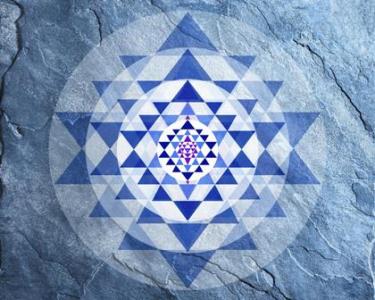Document Type
Article
Publication Date
2-2015
Abstract
This special issue of Integral Review features selected publications in connection to the 2014 Founders Symposium on Integral Consciousness at CIIS. The articles range form integral education to integral methodology and epistemology, to integral yoga.
Recommended Citation
http://integral-review.org/backissue/vol-11-no-1-feb-2015/
COinS



Comments
The first few articles in this issue represent a cross-section of topics in integral education ranging from integral methodology to pedagogy. We start with Integral Education in Light of Earthrise by Craig Chalquist. This article explores the relationship between integral education and the emerging terrestrial consciousness—a consciousness of interdependency, sovereignty, and earthly responsibility. It asserts that integral education is well positioned at this time when urgent environmental catastrophes threaten our planet, to help us recover an integral relation with the universe and our planet Earth, and contribute to restoration of a sense of earthly wonder and reverence.
The next article by CIIS president, Joseph L. Subbiondo, titled The Dynamic Unity of the Opposites: Haridas Chaudhuri’s Integral Method and Higher Education, highlights CIIS founder’s principal methodological approach known as Integral Dialectics and its related principle of the ‘dynamic unity of the opposites’, as an essential aspect of his unique model of integral education. Integral dialectics aims at reconciliation of what appears to the mind as polarized conceptual opposites and engages the totality of human experience, educating the whole person beyond the dualistic rational methods of Western education.
The article titled Integral Epistemology and Integrative Methodology provides an introduction to integral epistemology and integrative methodology through a discussion of basic ontological principles of integralism and their implications for developing integrative approaches to knowledge. As an application of the integral dialectical approach the current dichotomy between qualitative and quantitative research methods is reconciled by showing that various research methods belong to a wide spectrum of methodologies that correspond to an integral epistemological gradient. Lastly, I discuss ‘integral dialectical synthesis’, ‘unity-in-diversity’, and ‘analytico-synthetic integration’ as three basic strategies for integrative research.
The next article is a unique collaborative project by a group of fellows and teachers from the Integral Teaching Fellowship Program at CIIS titled Positionality as Knowledge: From Pedagogy to Praxis. In this article, the authors Sara Maria Acevedo, Michael Aho, Eri Cela, Juei-Chen Chao, Isabel Garcia-Gonzales, Alec MacLeod, Claudia Moutray, and Christina Olague help the reader better understand the epistemological relevance of positionality in integral education and critical pedagogy, encouraging students and educators to recognize their social positionings and reflect on how the institutionalization of their social identities not only inform the lenses through which they view the classroom, but also influence how they participate in the classroom. By employing an integral learning model, a learning community is transformed into a dynamic positioning field, in which students and educators interact and co-create knowledge beyond their habitual or institutionally imposed positionings.
The final article in this subset is an example of integral scholarship by a current CIIS student, Robert V. Burke, who explores two personal non-ordinary state spiritual experiences in the context of traditional yogic potentials, also known as siddhis, in his article Manifest Transpersonal Experiences: Aṇimām and Laghimā Siddhis. Such experiences which are not likely to be discussed in traditional higher education exemplify the nondual, non-rational and non-ordinary transpersonal states through a specific discussion of how aṇimām siddhi of infinitely small somatic perceptions, and laghimā siddhi of levitation are manifested.
The next two articles are philosophical in their scope. First, Karabi Sen in her article titled The Restoration of Wholeness explores one of the key principles of integral philosophy—wholeness. Sen argues that integration is a developmental process which takes place in time and space. The self matures, shines and brings itself to fruition only through trials and tribulation due to loss of wholeness—without which we would not have a vision of what constitutes wholeness; nor would we aspire after its retrieval. Sen asserts that the journey to integration is difficult when we separate ourselves from our fellow humans and other forms of life or see ourselves as different from the soil and air and water that make us. Once we see ourselves in all that surrounds us and recognize them in ourselves uniting is not hard any longer. When we unite with the world we achieve a united, harmonious, whole self within as well.
Individuation, Cosmogenesis and Technology: Sri Aurobindo And Gilbert Simondon by Debashish Banerji is a fascinating exploration of the philosophy of conscious evolution emerging from different cultural backgrounds and historical eras. Banerji argues that the idea of conscious evolution, which has sometimes been seen as a philosophical consequence of Darwin’s evolutionary theory in the life sciences, is more importantly related to the enhanced scope of human subjectivity made possible by technology. This essay considers the ideas of two generations of thinkers, focusing on Sri Aurobindo (1872-1950) from the earlier generation, and Gilbert Simondon (1924-1989) from the more recent era, questioning the consequences of contemporary technology in their thoughts, goals and practices. In developing the historical continuity of ideas, it tracks the question of technology from the earlier to the later generation, highlighting the understanding of both its promises and its ills and engaging with it the possibilities of conscious evolution.
Our last article is an integral psychospiritual case history of Etty Hillesum, a Jewish woman whose letters and diaries kept between 1941 and 1943 describe life in Amsterdam during the German occupation. Unfolding Toward Being: Etty Hillesum and the Evolution of Consciousness by Barbara Morrill is an account of the unfolding of Etty Hillesum's developing consciousness from an integral individual evolution of consciousness perspective. In the introductory section some parallels and similarities between aspects of transformation of consciousness and personality in integral yoga psychology and the work of A.H. Almaas and Karen Johnson, the developers of the Diamond Approach, is drawn upon to set the stage. Subsequently, based on her diaries, the spiritual and psychological journey of Etty Hillesum is examined in the context of the stages described by the Diamond Approach's method of inquiry.